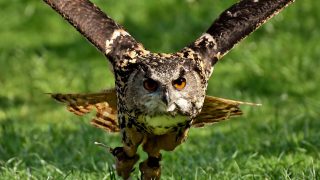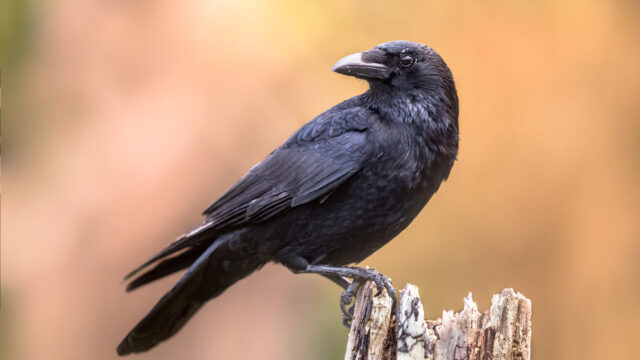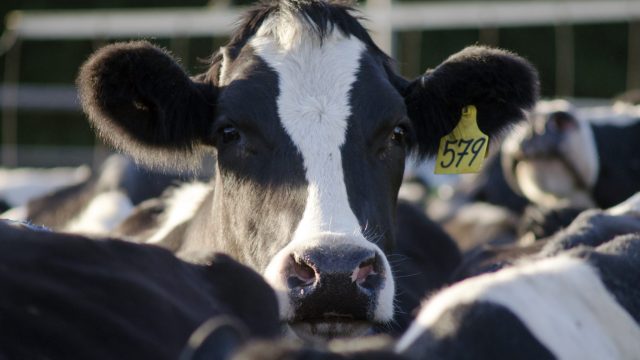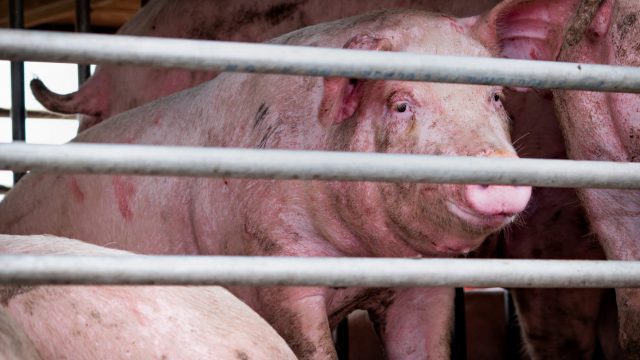
Robert Knaier
The Animal Legal Defense Fund would never be able to use the law to advance the interests of animals without the support of legal professionals nationwide. In this continuing series of spotlights, ALDF’s Animal Law Program salutes attorney Robert Knaier.
There are countless avenues by which people are prompted to give more consideration to non-human animals. For Robert Knaier, it was philosophy. Prior to studying law, Bob earned his bachelor’s degree in philosophy at UC San Diego, concentrating on moral and political philosophy and the philosophy of science–an academic track that brought him face to face with, as he puts it, “The inescapable conclusion that our moral treatment of animals was entirely at odds with a thoughtful, accurate scientific worldview.”
Bob felt that, given our emerging understanding of neuroscience, for example, and given the continuity of humans with the rest of the animal world, it makes no sense to suppose that non-human animals do not suffer in ways analogous to–if not identical with–the ways in which humans suffer. “At the very least,” he says, “there is every reason to place the burden of proof on those who hold the contrary, though more traditional, view of non-human animals as incapable of such suffering.”
What hit him hardest was the use of great apes in medical and other scientific testing. “Given the physiological and cognitive similarities among higher primates–including us–I began to feel quite strongly that, at least with respect to the great apes, we have been behaving in ways that are reprehensible at best. It stuns me that we tolerate what amounts to the torture of such cognitively sophisticated relatives.”
A graduate of Cornell Law School (class of ’03), Bob is now an associate in the San Diego office of Latham & Watkins, where he focuses primarily on mass-tort litigation, business litigation and appellate practice.
But he never forgot his philosophical musings, especially how they relate to animals. “There is a pressing need to alter public perception of, and public policy about, our moral treatment of animals,” he says. “What better way than through the law?” So in the last year, Bob has taken on pro bono work for ALDF. Last year he assisted Bruce Wagman, ALDF’s chief outside litigation counsel, in our lawsuit against Corcpork, which was confining pregnant sows in crates so narrow the pigs could barely move.
As a member of Latham & Watkins’ pro bono committee, Bob has been getting other attorneys involved in ALDF projects, including a significant amount of research surveying an issue related to standing, which is the legal doctrine used to bring a case to court. Often the biggest challenge facing animal protection lawsuits is the standing barrier: how to prove a plaintiff has been injured in a way that the courts can remedy. Because of the built-in anthropocentrism of the legal system, animals’ injuries simply don’t count, so attorneys working in animal law have to think creatively about how their human plaintiffs have been injured by activities that obviously injure animals. Thanks to the research Bob worked on, ALDF is in a much better position to evaluate new and creative theories for getting into court to help animals.
Outside the courtroom, Bob and his wife, Michelle, enjoy motorcycle riding, snorkeling, traveling, and photography. They’ve also got a large family of companion animals: three cats and two Columbian boa constrictors, all adopted from shelters. “In the past,” he says, “Michelle and I have had several other cats, as well as dogs, a rabbit, a rat, and a tarantula.” (Yes, a tarantula.)
Bob says that he’s impressed by ALDF’s commitment to effective, practical action. “It’s one thing to sincerely believe in a cause, hope for change, or wish that the world were a better place. It’s something entirely different, however, to actually engage with problems in the way the ALDF does. People can too easily forget that seemingly conservative institutions–such as the legal system―can be used in ways to effect real, progressive change. But to effect such change requires meeting those institutions on their own terms–using their language and ways of reasoning–and doing the difficult work it takes to make the best case you can for the cause at issue. It seems to me that because of its commitment to the law, to the method of public reasoning and argument, the ALDF has, through its efforts in education, legislation, and litigation, the capacity to effect change for the cause of non-human animals in a way other organizations may not.”
“It is incredibly encouraging for ALDF to work with attorney members like Bob Knaier,” says Pamela Hart, director of the Animal Law Program. “In recent years, we have seen more and more exceptional attorneys and prestigious law firms recognizing the importance of animal law and, in turn, dedicating their time and expertise to this cutting-edge area of the law.”
You can learn more about Robert Knaier and Latham & Watkins at www.lw.com.
How We Work
Related
-
Animal Legal Defense Fund Grant Supported Washington Attorney General’s Enforcement of Animal Cruelty Law
The judge sentenced a Snohomish County resident for killing then displaying neighborhood wildlife and shooting a kitten in the eye.April 18, 2024 News -
REPORT: 95 Percent of Consumers Prefer “Climate-Friendly” Products, But Labels Oversell Emission Reductions
New report reveals how misleading labels lead to increased confusion among consumers searching for more sustainable, less environmentally damaging products.April 2, 2024 Press Release -
Lawsuit Filed Demanding FDA Respond to Petitions Seeking to Ban Ractopamine
FDA’s approval for ractopamine relied primarily on safety studies conducted by the drugmaker.March 26, 2024 Press Release



